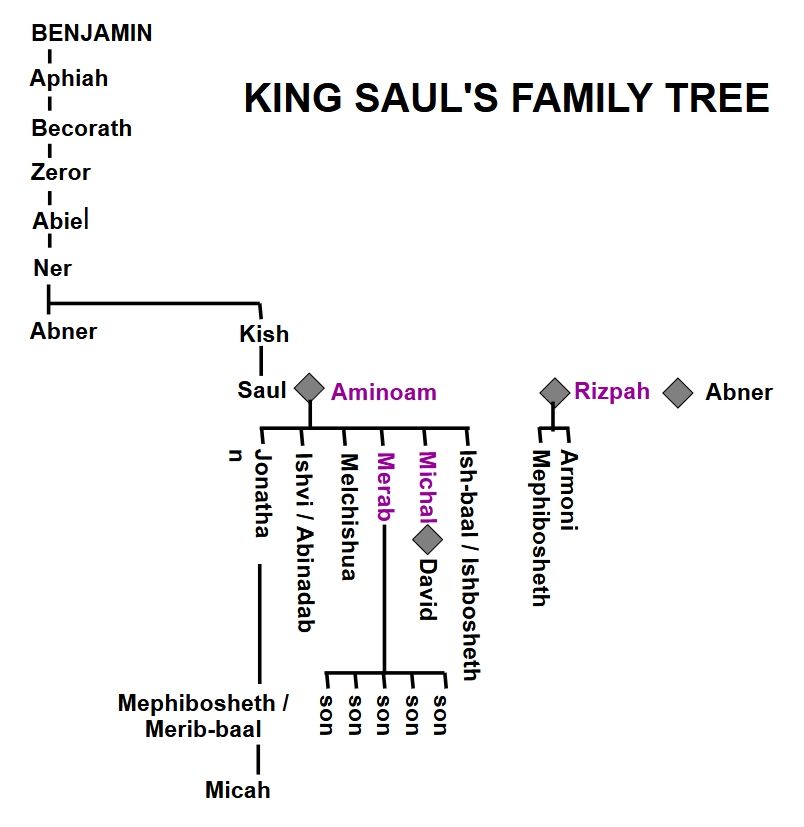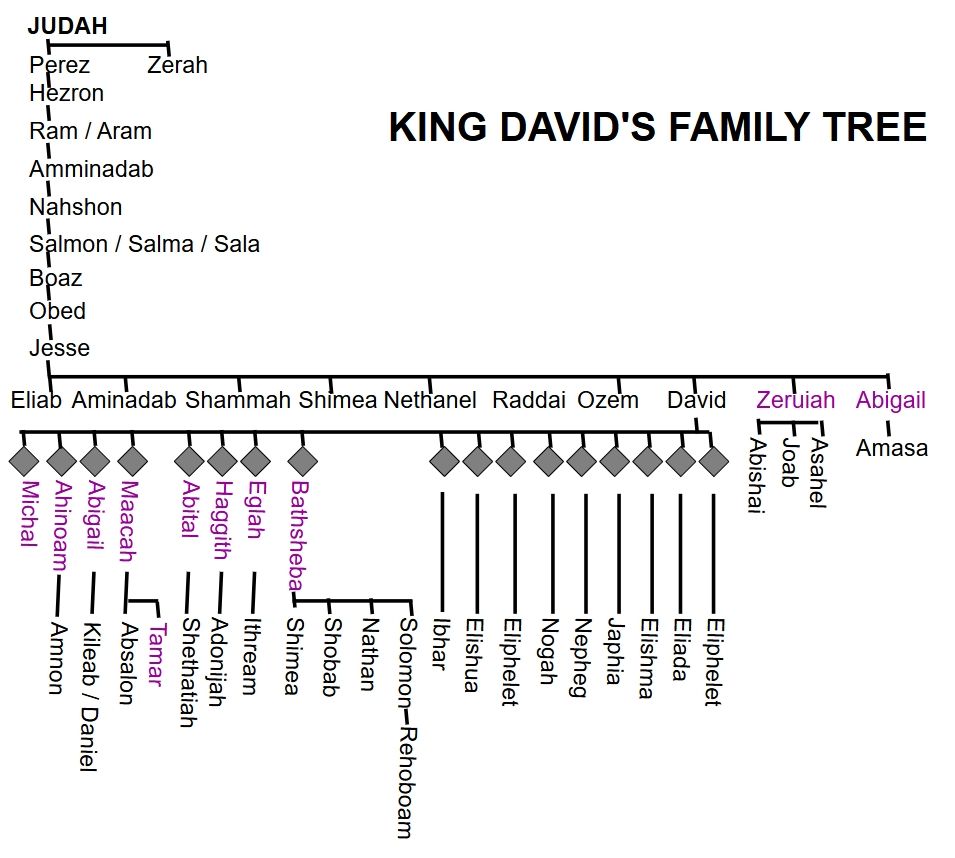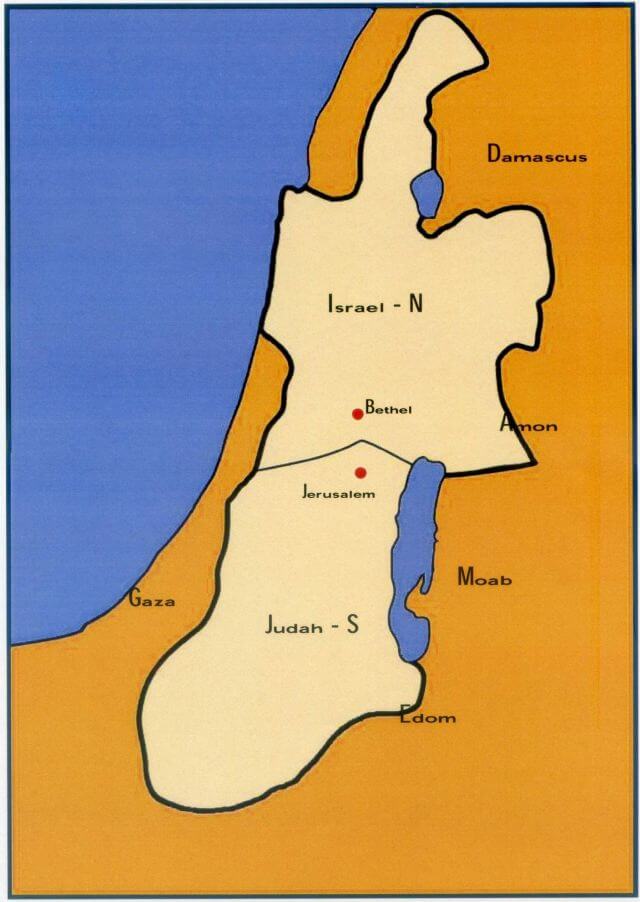GOVERNMENT 06 – MONARCHY IN ISRAEL'S HISTORY
God’s instruction for a Democracy - Deuteronomy 1:9-15
- Who decides on leaders? > the people > elective government
- Where from leaders? > from every group > representative government
- What kind of leaders? > wise (character), intelligent (skill), known (reputation)
- How are they chosen? > consensus process
Short history of Israel
- Israel establishes its government in 1446 BC at Sinai (Exo 18)
- Israel under Joshua conquers Canaan and settles in it from 1405 BC
- Israel starts disobeying the law (idolatry / injustices / etc.)
- God lets their enemies get strong, Israel suffers and repents
- Judges deliver Israel from around 1360-1050 BC (Book of Judges)
- Israel is a loose collection of 12 self-governed tribes (no central government)
Israel demands a king
1 Sam 8:1-3 When Samuel became old, he made his sons judges over Israel…Yet his sons did not follow in his ways, but turned aside after gain; they took bribes and perverted justice.
1 Sam 8:4-5 Then all the elders of Israel gathered together and came to Samuel…“You are old and your sons do not follow in your ways appoint for us, then, a king to govern us, like other nations”
What can we learn from this?
- Corruption makes people willing to accept extremer solutions
- Not even godly Samuel managed to pass his attitude on to the next generation!
- Pass down even under best of conditions is not sure at all
- They are in consensus, the process is healthy, though their goal is not good
1 Sam 8:6 “appoint for us, then, a king to govern us, like other nations”
- Israel, wanting to be ‘like others’
- Israel was meant to influence all other nations towards godliness & God’s law
- Now the opposite is happening: Israel wants to model itself by other nations
- This means a rejection of their calling in God. This means a rejection of God
Asking for a strong man
- Why do we want kings? Why do we push power up?
- We call for a ‘strong leader’, also today, if uncertainty, inefficiency or unpeace
- But: If you can’t hold the current government accountable to law, how will you keep an even stronger leader accountable?
Trouble foretold
1 Sam 8:9-17 God: “You shall solemnly warn them, and show them the ways of the king who shall reign over them”
- 1 Sam 8:10-17 The king will take increasing license, people will be increasingly enslaved, the rich-poor gap will be widening
- This is a very realistic description and is later fulfilled in detail
Problems with a Monarchy
- The government is not elective
- people have no power to decide, no power to replace bad leadership
- bloodline decides, not people … first-birth, father’s preference, intrigue decides
- fosters exclusivity, spoiling, hinders healthy competition
- introduces competition, intrigue, power-games, conspiracies within the family and
assassinations in general - If disastrous king, no good path left by which to bring change, only: assassination
- Skilled, wise and reputed individuals?
- leadership not by skill, wisdom, reputation, but birth
- leadership quality becomes accidental, at best
- no meritocracy > usually his means bad leadership
- luxury, exclusivity will spoil the upbringing of the new king
- intrigues and power-games seem to be more effective than good character
- The government is not representative
- people’s needs are less communicated, less heard, less addressed
- which leads to inefficiency, neglect, bad rule, discontentment, injustice, insecurity
- feeling of powerlessness
- loss of hope
- openness towards radical “solutions”
- eventually rebellion
Israel insists on a king and herewith on monarchy - 1 Samuel 8:18, 19, 22
- People’s answer to the warning: “No, but we want a king …”
- They refuse to see cause & effect, wanting a thing but not its consequences
- This will never work! Grow up! You can’t have a thing but refuse its consequences
- God: “Listen to their voice and set a king over them”
- God respecting his own principle of giving authority of government to the people
Monarchy's 1st king: - Saul 1 Samuel 9-31
- Saul gives them the victory they want
- But Saul quickly deteriorates
- he is insecure, doesn’t trust God, neither people, takes things into his own hands
- he quickly collects yeah-sayers (like Doeg, killing 85 priests at king’s order)
- he envies, hunts and tries to kill his competition
- he stays in power by force after God rejected him
- Sad and depressing death after consulting a witch

Monarchy's 2nd king: David - 1 Samuel 16 – 2 Samuel 24

- God indicates to choose him
- Personally godly > a good king
- Israel’s greatest king, but the system (monarchy) is bad
- David also deteriorates
- uses his power for adultery
- uses his power for murder
- refuses to judge his bad sons
- refuses to reign in Absalon
- Patterns laid for later?
- Polygamy
- multiple sons, partially related
- competition, feuds, hatred
- absence of judgment
- struggle around succession
- violence / assassinations
- Centralized government
- Elitist government
Monarchy's 3rd king: Solomon - 2 Samuel 11-14, 1 Kings 1-11
- Solomon is indicated by God to be next king
- His mother Bathsheba … who sins, yet has wisdom (Pr 31:1-9)
- He is set on the throne by his dying father David
- God asks what he wants: > wisdom. God gives wisdom, and riches, life, victory
- Builds the temple, at its dedication he prays a great prayer showing understanding
- God answers by his prayer by manifesting His presence (cloud on the tabernacle), like in Moses’ times. This is great confirmation. This is the best start ever.
- The law for kings in De 17:16-20: not too many horses, wives, wealth and honor
- Solomon breaks every one of these laws!
- Not too many horses?
- Solomon imports horses from Egypt and all lands (2 Chr 9:28)
- 1400 chariots
- 12’000 horses
- Chariot cities
- Solomon not only imports but effectively controls horse trade (1 Ki 10:26-29)
- Not too much wealth?
- God promises him great wealth (1 Ki 3:13)
- Gold, silver, ivory, great wealth (2 Ch 9:13-22)
- Requirements of food for court (1 Ki 4:22-23)
- Taxing system: 12 areas provide for the king for one month (1 Ki 4:7-19)
- He taxes all tribes, except his own (Judah), though it is the most populous tribe
- After 7y building temple, spends 13y on his own palace, and many other projects
- Exacts forced labor of foreigners … allowed in the law (1 Ki 9:15-22)
- Exacts forced labor of Israelites … not allowed in the law (1 Ki 5:13-18)
- Israelites say about Solomon to his son (after Solomon’s death) “your father made our yoke heavy”. So much for the ‘golden times’. (2 Ch 10:4)
- Not too many wives?
> Solomon marries 700 princesses and 300 concubines > probably many children- Solomon marries many foreign women (against God’s command)
- Foreign wives > He builds altars for their foreign gods > idolatry (1 Ki 11:1-8)
- impossible family situation, children growing up discipled by foreign mother
Monarchy's 4th King: Rehoboam, David’s grandson - 1 Kings 12-14
- Rehoboam’s mother: Naamah the Ammonite, discipling him in idolatry most likely
- Rehoboam does evil, pursues idolatry
- People of Israel come to him, request ‘lightening of the yoke’ after Solomon
- Rehoboam refuses in pride and adds to the pressure
- Israel falls apart North: Israel (10 tribes) > rebels against house of David
South: Judah (2 tribes) > reigned by house of David - never reunites, soon war against each other
- both kingdoms eventually conquered and exiled
Split Monarchy: Judah - Kings, Chronicles
- One dynasty only by God’s grace
- 4 of 23 kings (17%) are assassinated
- 2 of the 23 kings confirm their power by killing their brothers or others
- Over 450 years 23 kings (931-586 BC)
- Average reign per king = 20 years
- Within 450 years they become a complete disaster
- God judges by a wipe out & exile, there is a return
Split Monarchy: Israel - Kings
- Over only 200 years 19 kings and 9 new dynasties (931-722 BC) > instability
- 3 dynasties are terminated by an assassination of the entire family
- The longest dynasty is Jehu’s (5 generations) by a promise of God
- 8 of 19 kings (42%) die by assassination
- Average reign per king = 10 ½ years
- Within 200 years they are a disaster
- God judges by a wipe out and exile, they never return
Monarchy's end stage: Jeremiah - Jeremiah
- Persistent injustice and lawlessness
- Last kings are completely corrupt
- When Babylon finally conquers, Judah is more lawless than Babylon
- For the poor of Judah: conquest makes things not worse than they are
- God’s model nation (to reveal himself to all nations) ends in disaster
